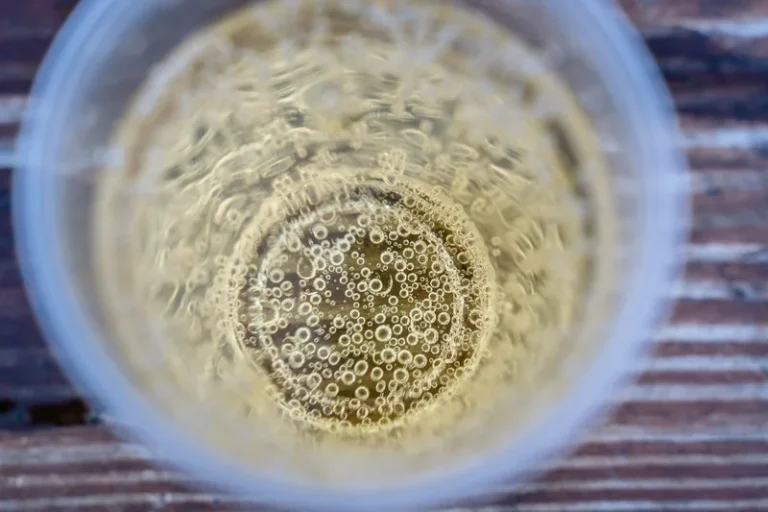
There’s the chance that they might not make it through it, they could fail, and then there’s the pressure to succeed. There’s a fear of a life without the ability to ever drink or take drugs again. Staying sober means staying clean, and that alone can be a scary thought for many addicts and alcoholics. Suboxone (buprenorphine/naloxone) is indicated for the treatment of opioid dependence in adults. For more information about Suboxone (buprenorphine/naloxone) see Suboxone.com, the full Prescribing Information, and Medication Guide, or talk to your healthcare provider.
Sober Strategies Playbook: Tips for Staying Sober
- Understanding one’s genetic predisposition can be crucial in developing a personalized recovery plan.
- Discreet, flexible, and 100% online—Workit 90 is a recovery program that fits your life, giving you the tools you need to cut back or quit drinking.
- Post-acute withdrawal syndrome (PAWS) involves withdrawal symptoms that persist past the detox period.
- Remember, you can get sober and you can stay clean, even if you happen to fall off the path.
- It’s important to remember that just because we’re highly focused on a recovery-based peer group now, doesn’t mean it has to stay that way forever.
Let’s dive into why sobriety can feel like an uphill battle and how you can make it easier. This article will uncover 7 hidden factors that make sobriety difficult. We’ll also provide practical strategies to overcome these obstacles. Change can be painful and scary fear of being sober and many people truly believe they will dislike sobriety. I thought being sober was lame and I couldn’t understand why anyone would want to do it. I was convinced I would hate it and that I would be miserable.
Developing Coping Skills and Support Systems

A quick glance into your local AA club can verify that there are many happy individuals with years of recovery out there who got through the first few months of staying sober. These people can provide valuable emotional support and practical advice. Most people who get sober have tried to quit using drugs or alcohol on their own in the past. If this describes you, then you likely already know that you’re probably going to experience some strong emotions once you quit using. Experts often describe relapse as a process that begins long before an addict returns to using a substance.
They Don’t Think it’s For Them
- It necessitates hard work, determination, and a commitment to personal growth.
- Strictly speaking, sobriety is the state of being sober—not being under the influence of alcohol or drugs.
- In sobriety, your mind will be clearer; you will have more energy, money and time.
- Ultimately, it’s important to remember that relapses happen to almost everyone.
You know, deep down, that you can and should have a better life. Every day, week, and month that you let slip by without tackling your drinking problem is time you can’t get back and more damage you must undo. Discreet, flexible, and 100% online—Workit 90 is a recovery program that fits your life, giving you the tools you need to cut back or quit drinking. Any general advice posted on our blog, website, or app is for informational purposes only and is not intended to replace or substitute for any medical or other advice. If you have specific concerns or a situation arises in which you require medical advice, you should consult with an appropriately trained and qualified medical services provider.
- Such changes can include avoiding triggers and creating a robust support system that encourages and uplifts.
- Friends in recovery can help you avoid high-risk situations, potential relapses, and provide you with alternatives as you discover your new, sober life.
- If you can’t remember, again, ask someone you love to remind you how horrible life was when you were NOT sober.
- When alcohol becomes an integral part of your life, it’s scary to think about who you are without it.

Another common fear in sobriety is that you’ll wind up alone because no one will want to hang out with you. We are biologically wired for companionship, so this is a very real and instinctual fear to have. If a booked social calendar is important to you, you’ll find ways to be proactive and realign what you do to fit your new lifestyle. There are plenty of things people do that do not involve or center around alcohol. You might be a little bored at first, but with time, you’ll discover new and more fulfilling things to do with your time. In my mind, sobriety meant Friday nights alone on my couch, watching Netflix and hiding from the rest of the world who was definitely out drinking.

These connections not only provide support during challenging times but also offer opportunities for shared experiences and new forms of entertainment that don’t revolve around substance use. Over time, repeated substance use can lead to changes in the brain’s structure and function. The brain adapts to these high levels of dopamine by reducing its sensitivity to the neurotransmitter. This process, known as downregulation, means that the brain requires more of the substance to achieve the same pleasurable effect, leading to tolerance and dependence. Creating a supportive environment is crucial for long-term sobriety success.
Build a support network, develop healthy habits, and practice self-compassion. Recovery from addiction isn’t a single event but a journey through distinct phases, each with its own set of challenges and milestones. Understanding these stages can help individuals prepare for what lies ahead and develop strategies to overcome obstacles. When a person stops using substances, their brain’s reward system doesn’t immediately return to normal.
Physical Withdrawal Symptoms
Understanding the nature of cravings is crucial for developing effective coping strategies. Mostly, we are in a great amount of pain and change is our only option. Alcohol was part of my identity and anything different seemed impossible. I didn’t want to admit that I might not have this drinking thing under control like I thought I did for so long. But it was hard for me to see that while I was in the thick of my addiction.
Sober Living is more Peaceful

Triggers for using drugs and alcohol typically are people, places, and things that remind you of your addictive behavior or encourage the use of substances you’re avoiding. One study found that 68% of people treated in a detox unit experienced moderate alcohol withdrawal symptoms. You can expect certain alcohol withdrawal symptoms such as sleep disruption to occur, though some people can experience seizures and other severe symptoms. After months or years of being fixated on drugs and alcohol, who are you if you arent an addict? These are some of the most difficult questions in recovery, and the answers may change over time. Fear of recovery not working and that you will return to use is real.

No comment yet, add your voice below!